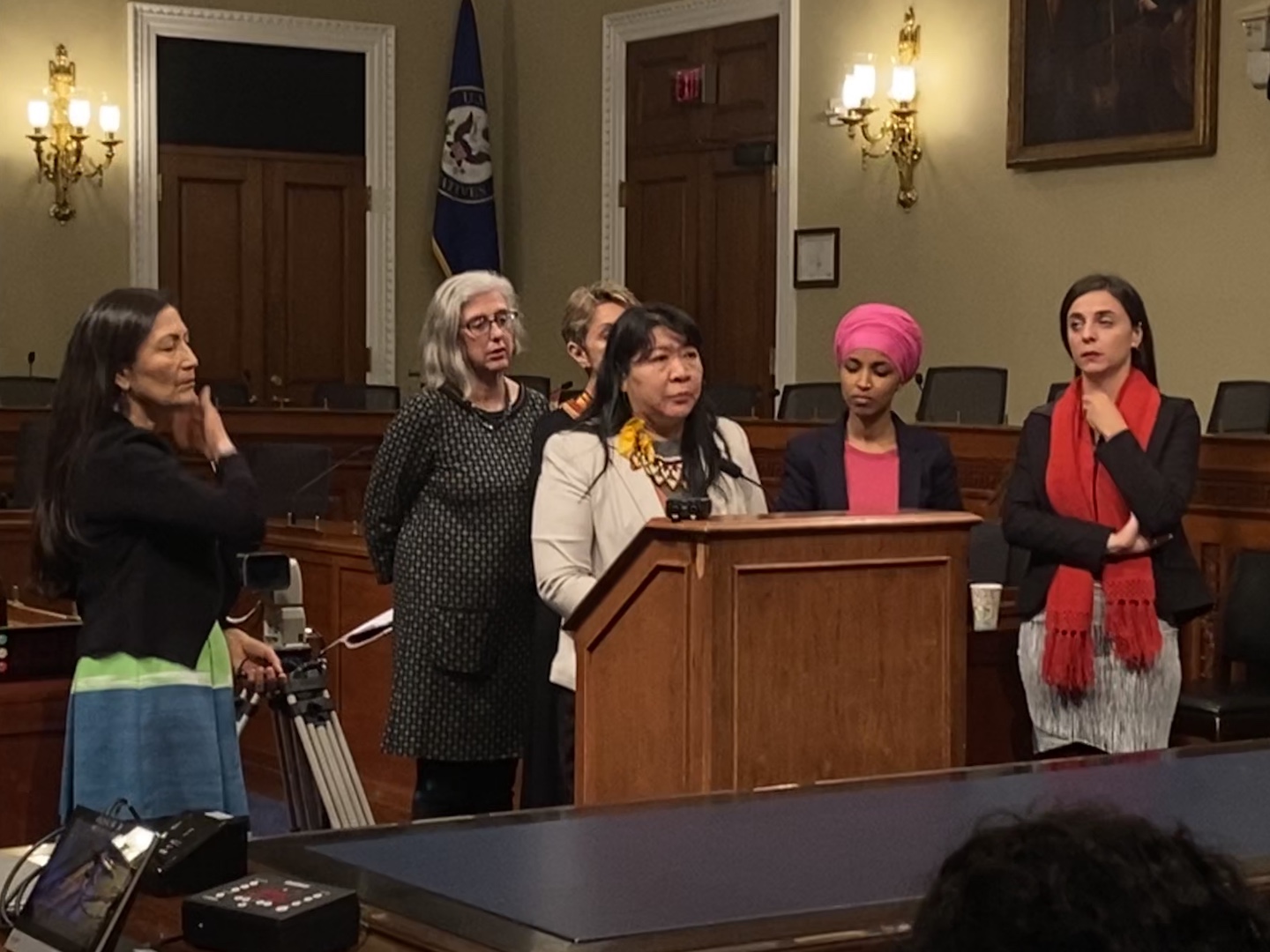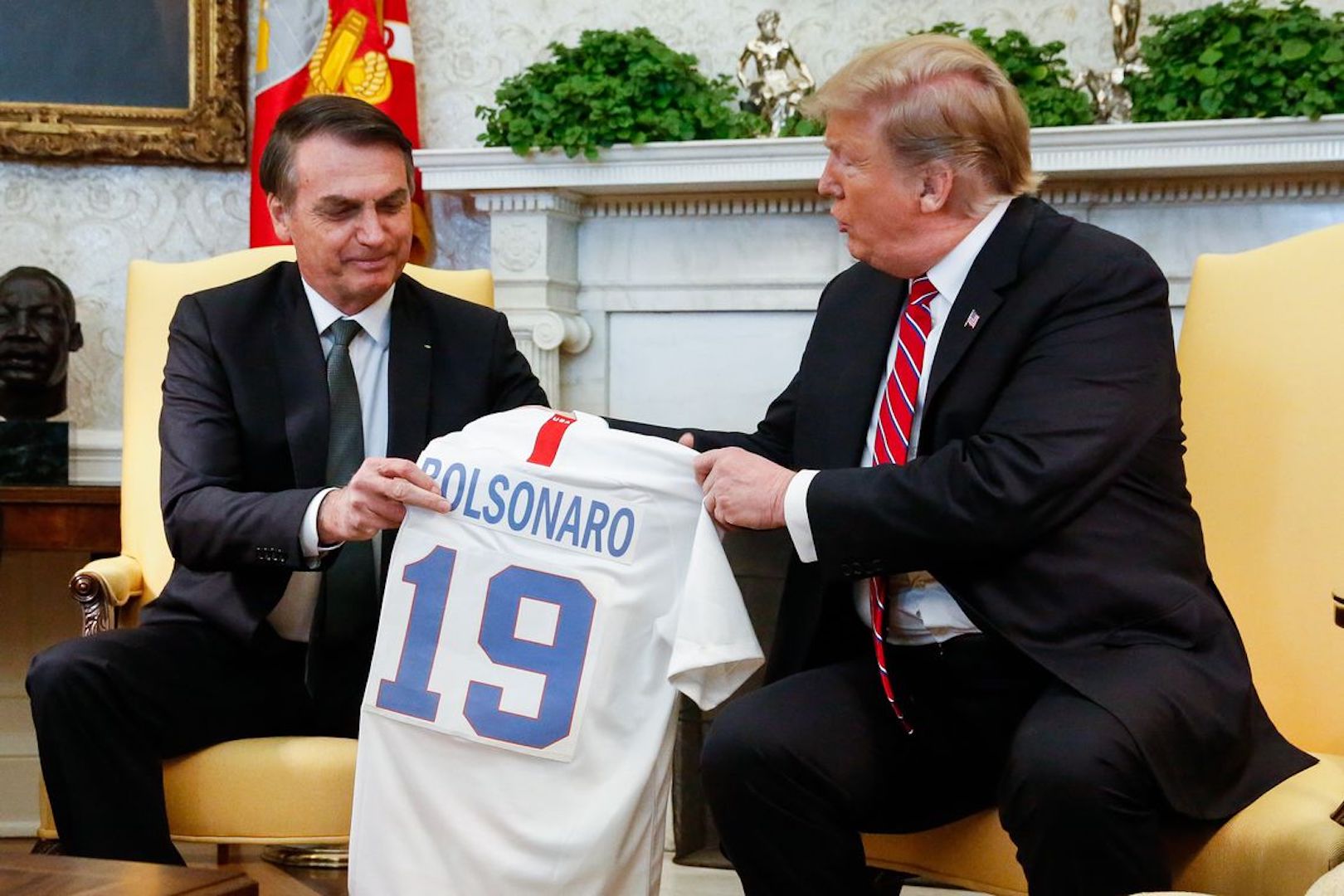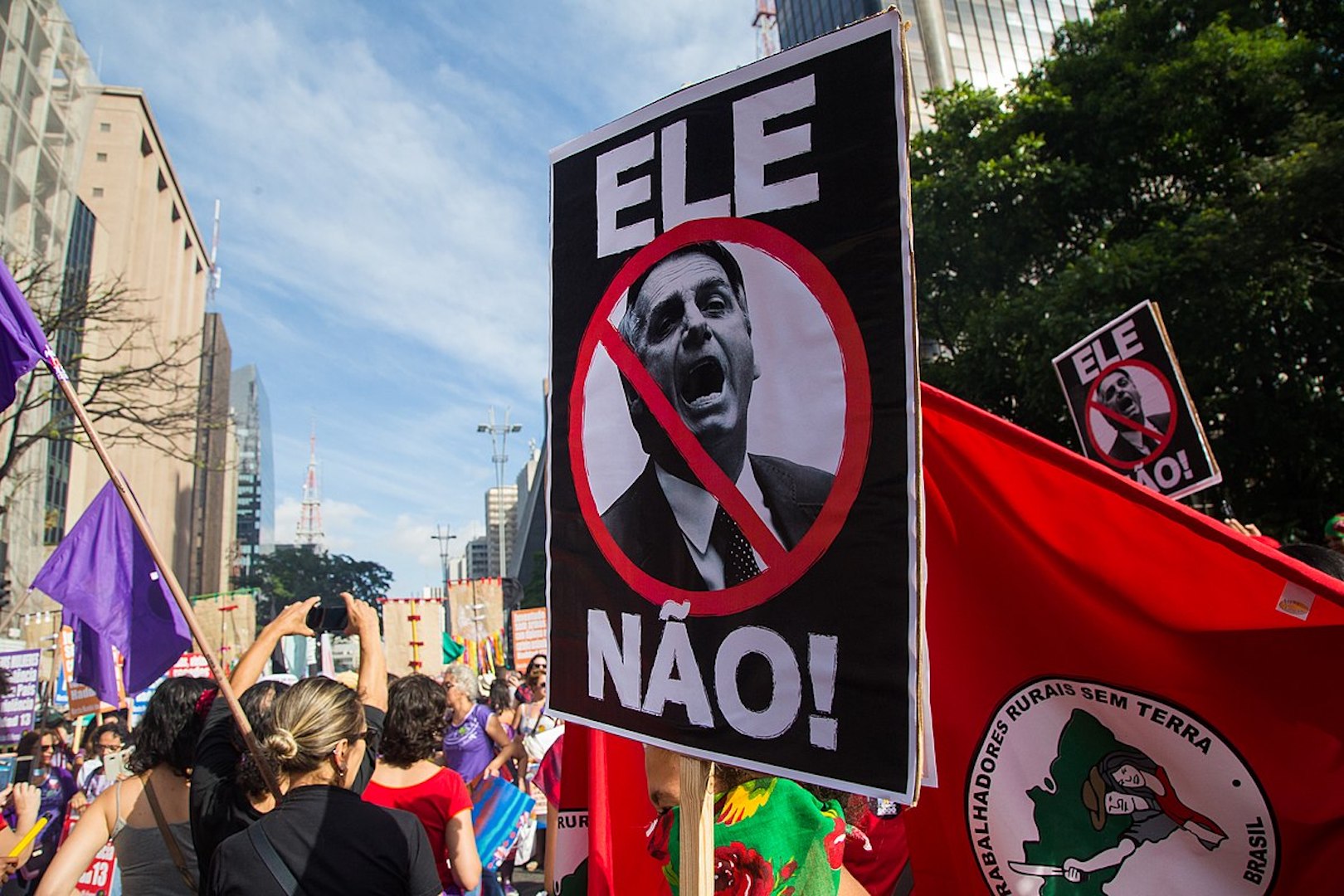SÃO PAULO, BRAZIL – Seeking support from foreign officials from what they say are human rights violations by the government of Brazil’s President Jair Bolsonaro, three Brazilian lawmakers have been talking to United States representatives in Washington DC this week.

The three representatives from Brazil’s Chamber of Deputies, Joênia Wapichana, Fernanda Melchionna and Erica Kokay, spoke to their US counterparts about the attacks committed by the current Brazilian government against the most vulnerable groups, like the indigenous and the LGBT community. They asked lawmakers from both countries to unite and strengthen the politics in defense of democracy, human, environmental and indigenous rights and social justice, both in Brazil and the United States.
“My visit to the US Congress, as leader of the Sustainability Network and the only indigenous representative in Brazil, is important to strengthen the struggles for the defense of the rights of indigenous peoples, of the Amazon forest and socio-environmental struggles,” said Congresswoman, Joênia Wapichana, the first indigenous woman elected to Brazil’s Legislature.
According to Wapichana, at a time when these vulnerable people are faced with a series of attacks and setbacks, it is important to approach other leaders who are also committed to the indigenous and environmental cause, and create a common and proactive agenda between countries.
“Both Brazil and the United States have a large indigenous and traditional peoples’ community. These cultures need to be preserved and it is our role, as parliamentarians, to establish the points that will ensure the defense of these rights,” added Wapichana.
It is the first time in history that indigenous women from South America and North America have come together to collaborate and discuss strategies to defend and protect the environment, indigenous rights and deal with climate change, said the lawmaker.
According to Wapichana, indigenous peoples are the main target of the Bolsonaro government, and representatives from different tribes have been seeking support for their cause, both in the US and in Europe.
During the meeting, leftist US representatives Deb Haaland and Ilhan Omar echoed their concerns about human rights, the Amazon as well as Brazilian President Bolsonaro’s relationship with US President Donald Trump.

“The Trump-Bolsonaro relationship is a threat. It’s a threat to humanity and it’s a threat to the air we breathe, the water we drink, and the land we rely on,” said Deb Haaland one of the first two indigenous women in the US Congress and part of the Laguna People (Kawaika) of the state of New Mexico.
Haaland added that “the problems that happen in Brazil reflect problems that are lived in the United States”.
For Representative Ilhan Omar, the rise of extremism in both countries is worrisome.
“Across the world, far right nationalism is on the rise. Just as we are witnessing the chilling rise of rightwing extremism here at home, we are seeing similar developments in Brazil and elsewhere. Our strategies for confronting this dangerous tide cannot be limited to our own countries,” said Representative Omar, one of the first Muslim women elected to Congress.
“All of us around the world have a responsibility to build alliances and share strategies to build a more peaceful and just world. I was so grateful for the opportunity to meet with our Brazilian counterparts this afternoon and look forward to our continued collaboration,” added the US lawmaker.
In addition to indigenous rights and the fight against the deforestation of the Amazon, the Brazilian representatives also discussed human rights violations which have been occurring in Brazil.
“My visit to the US comes to denounce the atrocities perpetrated by Bolsonaro against the lives and rights of workers, women, blacks, LGBTQs and indigenous people,” said Brazilian lawmaker Fernanda Melchionna, denouncing the increased number of feminicides in Brazil last year.
According to Melchionna, ‘the total subservience of Bolsonaro to Donald Trump shows that our oppressors are very well connected’.
“Today, more than ever, the progressive forces of Brazil and the US must fight together. Our fight must be global!” concluded the federal representative.

Erika Kokay, a member of the Human Rights and Minorities Commission at Brazil Chamber of Deputies, noted that the mission of the Brazilian lawmakers to the United States was aimed at strengthening ties with progressive American congresswomen.
“We are experiencing setbacks in the labor rights, environmental protection, in social participation, in the rights of indigenous peoples, Afro-Brazilian quilombola communities, women, LGBT’s. There is a dangerous denial about climate change. Journalists are threatened daily and press freedom violated. We want to talk to the world about the countless threats to democracy, freedom and rights in Brazil,” said Kokay.
During their weeklong visit the three Brazilian lawmakers were also expected to speak to the US House Committee on Natural Resources about environmental issues, as well as to the Department of State’s Secretariat for Democracy, Human Rights and Labor and with members of the Inter-American Commission on Human Rights (OAS).

